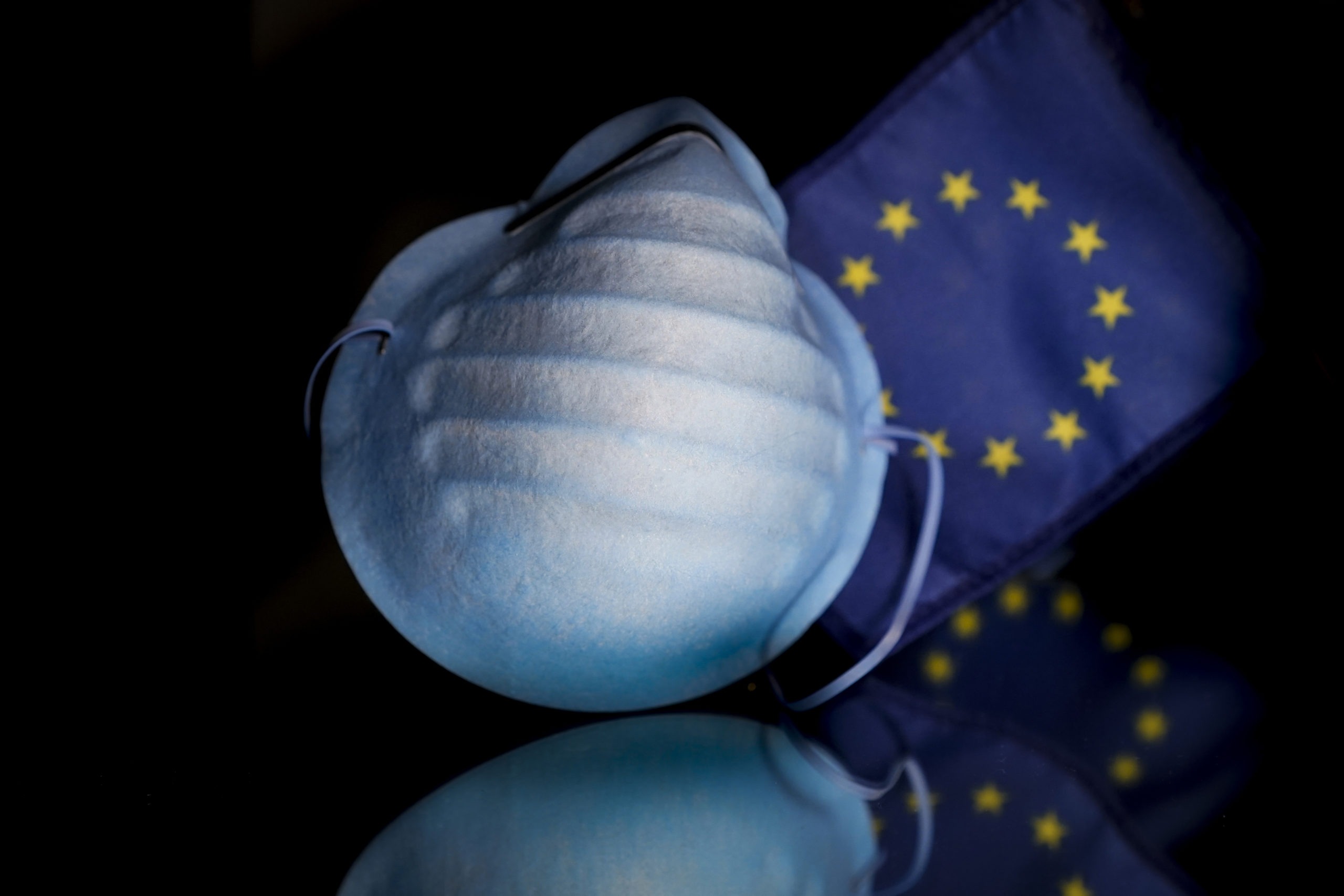Fears of ‘funny money’ as EU preps virus recovery
EU nations are still divided on how to finance measures to support the recovery of the bloc’s economy (Kenzo TRIBOUILLARD)
Brussels (AFP) – The European Commission, the EU’s executive arm, has been handed the unlucky task of crafting a recovery response to rebuild the economy after the devastation wrought by the novel coronavirus.
The hardest hit countries — Italy, Spain, France and Belgium — are also among the continent’s most indebted and as such are constrained in what they can do.
Indeed, a spending splurge without EU backup could spook the markets and destroy all hope that their economies escape the outbreak in good shape anytime soon.
EU economy commissioner Paolo Gentiloni insists Europe needs a 1.5-trillion-euro ($1.6 trillion) shared injection to avert long-term disaster.
So far member states have only committed about a third of that and strictly for emergency spending, because frugal northerners such as the Netherlands, Austria and Germany are resisting doing more.
To give an idea of the sensitivities involved, the commission was on Thursday forced to point out that the plan, which does not yet exist, should not be referred to by reporters as a “fund”, but as an “initiative” or an “instrument”, presumably so as not to ruffle the feathers of the frugals.
Here is a look at the difficult path that lies ahead:
– No coronabonds –
To avert a replay of the eurozone debt crisis, Spain and Italy spent weeks pleading for unprecedented help from their richer and less impacted neighbours.
Their initial plan hoped eurozone nations would borrow jointly towards an anti-recession war chest through something called a coronabond.
Germany and the Netherlands rejected this out of hand, not wanting to bind their country’s economic fortunes to those of their overly indebted partners.
But, sensitive to tragic scenes in Italy, the so-called frugals agreed to provide some form of extra economic solidarity that would use a beefed up EU budget to seed more investment in Europe.
Contrary to popular opinion, the EU budget lacks spending power when compared to national budgets, especially a powerhouse like Germany.
Currently the budget is worth roughly one percent of the bloc’s overall economy, most of it spent on farm subsidies and aid to Europe’s poorer regions.
So when Ursula von der Leyen, the European Commission chief and a former German minister, said that the virus recovery would run into the trillions, eyebrows were raised.
It would not be the first time the commission has oversold its programmes through financial smoke and mirrors.
– Old idea –
A likely model is something known as the Juncker Plan, created by Von der Leyen’s predecessor, Jean-Claude Juncker.
Under this wheeze, Brussels claimed to have leveraged 16 billion euros from the EU budget into 335 billion euros of private investment through financial engineering.
But last year the EU’s own court of auditors expressed doubts, denouncing unproven financial alchemy. In some cases, Brussels was passing off old money as new, it cautioned.
“The comparison with the Juncker plan is quite relevant. We’re trying to make claims based on unrealistic calculations,” economist Anne-Laure Delatte, of the CEPII think tank, said in Paris.
When a draft commission plan leaked earlier this month many saw similar tricks.
The document promised to generate two trillion euros of investments on the back of 320 billion euros of borrowing on financial markets.
With the Juncker plan, “we had heard claims of multiplying actual funds by 15. This is the same idea,” warned Delatte.
Officials swiftly disowned the leak.
Economist Nicolas Veron of the Bruegel think tank suspects there is “a lot of confusion about how to proceed”.
Pledges of “funny money” damaged the credibility of the EU and he hoped there might be “a growing recognition that we are talking about life and death, and that a smoke and mirrors plan would be counterproductive.”
– ‘No future’ –
Funny money is not the only contention against loans as a rescue.
EU loans often come with strict reform conditions attached, such as those imposed on Greece in the debt crisis.
Italy and Spain say they will refuse such demands and call for direct aid with no strings attached.
“That’s going to be our position,” said a senior Spanish government official, adding that he had the backing of France, Italy and Belgium.
The commission says there will be a mix of both.
After an EU summit last week, French President Emmanuel Macron warned “there is no consensus today” on how the plan will play out.
“Nevertheless… I believe that our Europe has no future if you do not know how to provide this answer,” he said.
Once made, the commission’s proposal will go back to the EU leaders for approval.
For Fabian Zuleeg, chief executive of think tank the European Policy Centre, the time of “absolutist debates is over”.
“The worst of all worlds, would be no agreement,” he said.
Disclaimer: Validity of the above story is for 7 Days from original date of publishing. Source: AFP.


